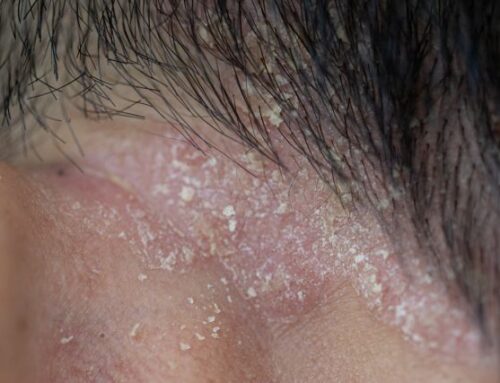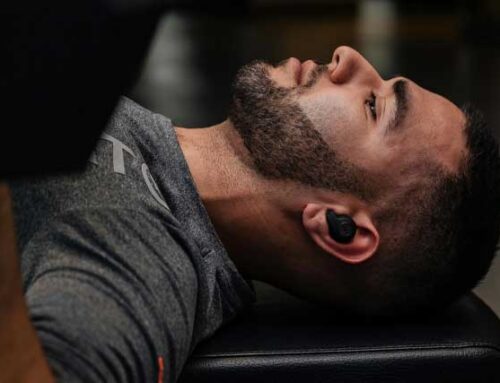A Review of the Facts Behind Hair Regrowth Products
The market is flooded with products claiming to promote hair growth and stop hair loss. Among these, shampoos for hair loss have gained significant visibility. But the question remains: do these specialized shampoos for hair loss actually deliver on their promises? In this week’s blog post, we want to briefly examine the science behind hair loss, examine the effectiveness of hair loss shampoos, and explore alternative treatments that may offer more substantial and long-term results.
A person’s hair obviously plays a crucial role in how we perceive ourselves and how others look at us. It is a major contributing factor in any man or womans self-confidence. For many, the prospect of losing hair can be distressing, to say the least. This has led to a surge in over-the-counter hair loss solutions, with hair loss shampoos being at the forefront. However, while hope springs eternal, it is wise to approach these products and their claims with a critical eye and understand their limitations and potential benefits.
Understanding Hair Loss: Causes and Mechanisms
Before evaluating the effectiveness of hair loss shampoos, we first need to understand the underlying causes of hair loss. One major factor is genetics, as male and female pattern baldness, also known as androgenetic alopecia, is the most common form of hair loss and is largely determined by hereditary traits.
Hormonal changes, particularly fluctuations in dihydrotestosterone (DHT), can also lead to hair thinning and loss. Additionally, medical conditions such as thyroid disorders, autoimmune diseases, and scalp infections can contribute to hair loss. Nutritional deficiencies, including a lack of essential nutrients, vitamins, and minerals, can negatively affect hair health and growth.
Similarly, high stress levels, poor diet, and certain hairstyling practices, further exacerbate the problem. Understanding these various factors is important when assessing the potential effectiveness of hair loss shampoos and other treatments.

The Science Behind Hair Growth and Loss
Hair growth occurs in cycles, with each hair follicle passing through three main phases. The first phase, known as the anagen or growth phase, is the active stage of hair growth and lasts between two and seven years. This is followed by the catagen phase, a short transitional period of about two to three weeks during which hair growth slows down. Finally, the telogen or resting phase lasts approximately three months, after which the hair falls out and a new hair begins to grow.
Hair loss occurs when this natural cycle is disrupted, often as a result of the miniaturization of hair follicles caused by the hormone dihydrotestosterone (DHT). This hormone can shrink hair follicles, leading to the production of thinner and shorter hairs until hair growth eventually stops altogether.
The Promise of Hair Loss Shampoos
Hair loss shampoos are marketed as a convenient and non-invasive solution to combat hair thinning and promote regrowth. These products often claim to:
- Block DHT production
- Stimulate hair follicles
- Strengthen existing hair
- Improve scalp health
- Increase hair density and volume
However, it’s important to approach these claims with a healthy dose of skepticism and examine the scientific evidence supporting them.
Ingredients in Hair Loss Shampoos: What to Look For
While the effectiveness of hair loss shampoos is debatable, certain ingredients have shown promise in promoting scalp health and potentially supporting hair growth. Some key ingredients to look for include:
- Ketoconazole: An antifungal agent that may help reduce inflammation associated with androgenetic alopecia.
- Caffeine: Some studies suggest that caffeine may stimulate hair follicles and promote growth.
- Biotin: A B-vitamin that supports healthy hair, skin, and nails.
- Saw palmetto: An herb that may help block DHT production.
- Niacin (Vitamin B3): May improve blood circulation to the scalp.
- Peppermint oil: Has been shown to potentially stimulate hair growth in some animal studies.
- Rosemary oil: May improve circulation and stimulate hair follicles.
While these ingredients show promise, it’s important to note that their effectiveness when used in shampoos may be limited due to the short contact time with the scalp.
The Limitations of Hair Loss Shampoos
Despite the claims made by their manufacturers, shampoos for hair loss have several major limitations. One major issue is their limited contact time, as shampoos are typically rinsed off after a few minutes, restricting the time their active ingredients have to penetrate the scalp. Additionally, most hair loss shampoos are unable to address the genetic or hormonal factors that often contribute to hair loss.
Many of the claims made by manufacturers also lack robust scientific evidence and are not supported by extensive clinical studies. Individual response to these products can vary significantly, as factors such as hair type, scalp condition, and the underlying causes of hair loss influence effectiveness. Additionally, some ingredients in hair loss shampoos may cause side effects, including scalp irritation or allergic reactions, in certain individuals.
Realistic Expectations: What Can Hair Loss Shampoos Actually Do?
Alternative Treatments for Hair Loss
For those seeking more effective solutions for hair loss, several alternative treatments have shown promise:
- Minoxidil: An FDA-approved topical treatment that can help stimulate hair growth in some individuals.
- Finasteride: An oral medication that can help block DHT production and slow hair loss in men.
- Low-level laser therapy: This non-invasive treatment may stimulate hair follicles and promote growth.
- Enhanced Hair Therapy: This treatment uses a patient’s own blood platelets to stimulate hair growth.
- Hair transplantation: A surgical procedure that can provide long-lasting results for those with significant hair loss.
These hair restoration options have been shown clinically to offer more substantial long-term results than simple shampoos for hair loss alone, but they also come at a higher cost.
The Role of Professional Guidance in Hair Loss Treatment
While over-the-counter products like shampoos for hair loss are readily available, seeking professional guidance can be invaluable when dealing with thinning hair and balding. A dermatologist or trichologist can:
- Accurately diagnose the cause of hair loss
- Recommend appropriate treatments based on individual needs
- Monitor progress and adjust treatment plans as necessary
- Provide guidance on maintaining overall hair and scalp health
Professional advice can help individuals avoid wasting time and money on ineffective treatments and focus on solutions that are more likely to yield results.
Making Informed Decisions About Hair Loss Treatments
When considering hair loss shampoos or any other treatment for hair loss, it’s important to:
- Research thoroughly and critically evaluate product claims
- Consult with a healthcare professional for personalized advice
- Consider a combination of treatments for best results
- Be patient and consistent with chosen treatments
- Maintain realistic expectations about outcomes
Remember that what works for one person may not work for another, and finding the right solution can be made much easier and more certain by consulting with a hair loss specialist with a proven track record of positive outcomes.
If you’re concerned about hair loss and want to explore effective, personalized solutions, we invite you to consider scheduling a complimentary, private consultation with one of our hair restoration specialists at Grow Your Hair Back in McLean, Virginia. Our experts can assess your individual needs and recommend a tailored treatment plan to help you achieve the best possible results in your hair restoration journey.




